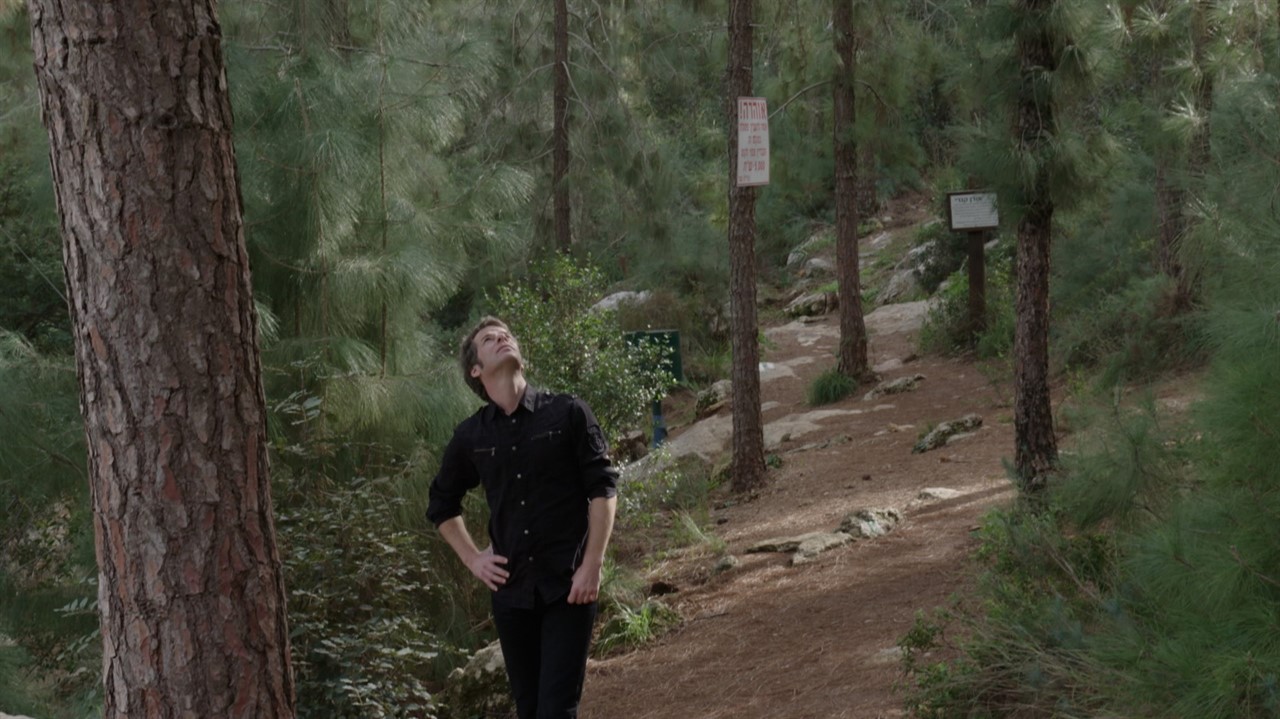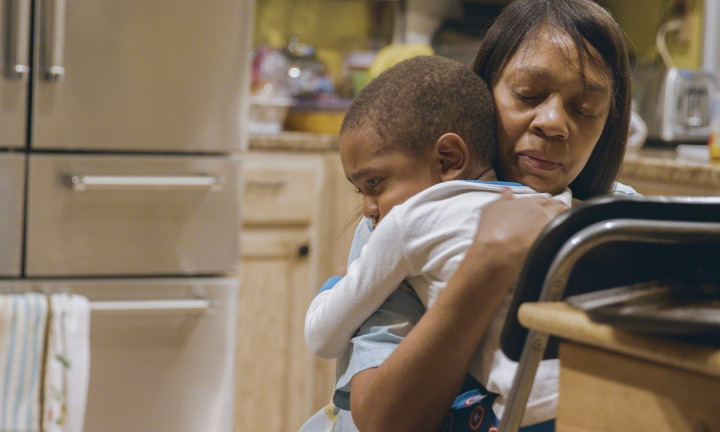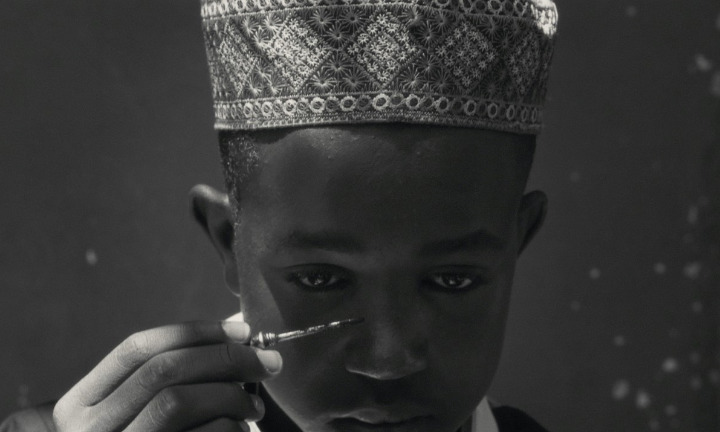For decades, Jason Sherman has been exploring the notion of what it means to uphold the expectations a good Jewish life. He uses his experience growing up in Canada to reflect upon the relationship between individuals and the very idea of what it means to support the notion of Israel despite the realpolitik challenges that belie the spirit of justice and acceptance. From The League of Nathans to Reading Hebron, his plays have sparked discussion and attempted to reconcile these many dialectical contradictions in fictional form.
Sherman’s docudramas, such as Jonestown: Paradise Lost about the cultish suicides, and We Were Children, exploring the Canadian historical stain of the residential school system, have further emphasized his restless desire to confront hard questions. They get audiences intellectually and emotionally involved in harrowing and often deeply unsettling tales that oppose many preset expectations.
My Tree is a light, yet no less provocative, examination of one man’s search to find a tree gifted to him on the day of his Bar Mitzvah. Many Jews in this country (this author included) share the tradition of gifting a tree as a way of bestowing environmental stewardship and a direct, rooted connection to the land of Israel from a young age. While the Sisyphean task of trying to find one tree among many is a mere starting point, Sherman deftly expands the story to explore the complications of Israeli land ownership, particularly in an area where, for thousands of years, disparate peoples have laid claims in a cycle of residency and removal.
Sherman wisely never succumbs to polemic or screed. He instead lets his participants share their views on these complicated and intertwined subjects to invite an open conversation. My Tree is a film with a clear point of view, of course, yet above all, it shows a filmmaker open to the experiences of those with him he speaks, even those that he may not agree with. It’s a film that above all highlights the need to listen and to engage, a message that may feel somewhat naïve given the factors at play, but one that’s nonetheless a welcome addendum to what’s often a polarizing and intransigent topic for discussion.
POV spoke to Sherman by phone prior to the Hot Docs premiere of My Tree.
POV: Jason Gorber
JS: Jason Sherman
This interview has been edited for concision and clarity.
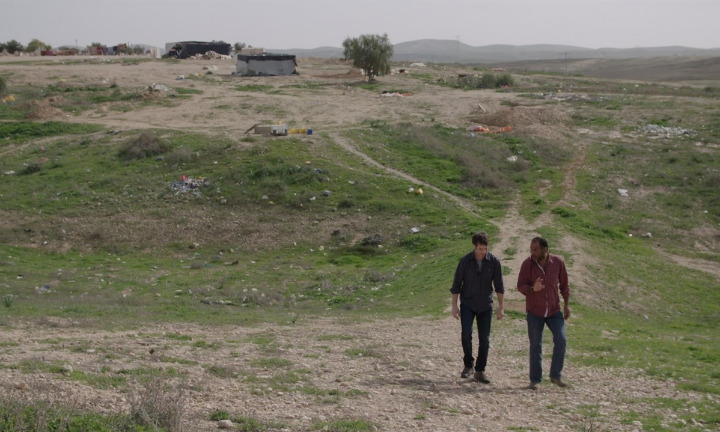
POV: Let’s talk about where this idea blossomed. Obviously, it originated with a Bar Mitzvah present, but what fostered your shift from the stage to the camera?
JS: Israel is where the idea was first planted. The actual tree was planted in 1976, and some 40 years later when I went back to look for the tree. A few years before that I flew to Israel for my first time. Most Jewish kids that I know went to Israel much younger than I did. I waited until I was like in my late 40s, early 50s, not for any particular reason, I just never made it over there. Growing up Jewish in Toronto, any diasporic kid would have had the same kind of experience. We weren’t a really religious family, but we went to schul, had Bar Mitzvahs, had Passover seders, all of that stuff. Israel is a presence in your life, and then it all kind of hits you when you go there for the first time. It’s like going to London for the first time after growing up reading Dickens and all of the great works of English literature, you can’t help but go, “Oh my God, that’s where Oliver Twist ran down the street!” The same thing happens in Israel, but it’s deeper and more moving because it’s everything you’ve grown up with from a very young age. I have this kind of emotional response to being in the land, but something else was bugging me and not really connecting. I started to ask myself, “What is my real connection to this place?” Tree reared up, as it were. I decided I wanted to find it, to see where it is, and see what sort of feelings arise from standing in front of it. I had to wait until I got home to see if I could find the certificate that came with the tree that had been given to me on the night of my Bar Mitzvah, and that started the ball rolling.
POV: What prompted you to go to Israel that first time?
JS: Every year, Israel has a theatre festival and they invite theatre makers from across the world to come and watch their plays with hopes that people will take Israeli plays back home to produce or share. I was indoors most of the time, watching plays, or being bussed from Tel Aviv to Haifa, from Tel Aviv to Jerusalem, or whatever. But I did decide on that trip that I wanted to come back here on my own and look around.
POV: By on my own you mean with a camera crew?
JS: No, my second trip was just me tooling around. The idea hadn’t formed itself yet, and in fact, it didn’t form itself as a documentary until much later. My first thought was to get back to some of the things I’ve been thinking about as a Jew living outside of Israel and my connection to it. I had written plays on that theme, and I’d left that behind for a long time. These back-to-back trips were made quickly. They made me think I would revisit the characters in those plays. I would give the main character this idea that he was going to go look for his tree and make a documentary about it. As I was working on the play, I thought, I think I’m going to make an actual documentary about looking for my tree, and eight years later, I finally made it!
POV: What was that transition like, working on stage to making a film? How different is it in terms of skill set, and how different is it making you the center of your own narrative?
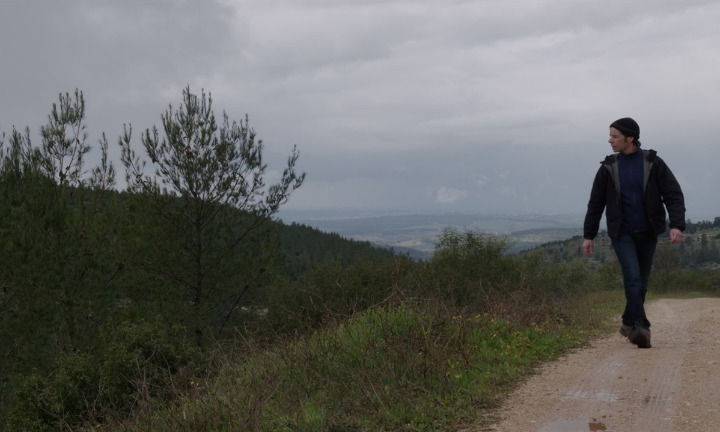
JS: I don’t want to make it sound like it’s easy, ‘cause it ain’t. It is apples and oranges. But with this particular story, about what it means to be Jewish and the connection to Israel that I had explored in a couple of works, I already had a character in those plays who was a stand-in for me. It was fictional, but I poured all of my thoughts and feelings into those characters. I’m not playing a character in the documentary, but when it came time to do the movie, there’s a sense it’s that same character as in my plays, but stripped of the pretense of being a fictional character. Here I’m just sort of playing myself as myself instead of writing a version of myself for a character in a play. I wasn’t feeling self-conscious at all about being in the movie because it is my story. I have so much experience in theatre, not as an actor per se, but putting myself before an audience. It just felt right that I should put myself front and centre in the documentary and not hide behind the camera and interviewing people.
POV: Just to dig deeper into that, when you’re writing voiceover, how different is writing voiceover than writing a monologue?
JS: Great question, and I would say not very different [laughs]. It is a monologue! Of course, you want to shape it, you want to give it a certain feeling. There are different kinds of voiceover in the film, there are times when it’s almost self-consciously more poetic, I don’t know if it’s poetry by any means, but there are times when it’s just straightforward—I met this guy, this is who this guy is—just taking the viewer by the hand.
POV: Well, that’s writing stage directions, basically.
JS: Yeah, that’s right, but trying to do it in a way where I’m still present. It’s a way to focus the film for the viewer. I try not to tell people everything that they’re seeing. I had to pull back quite a bit. There are different kinds of approaches to the voiceover. There were times when I’m walking through the first forest, and had an idea to talk about the more emotional [elements]. I wanted to try to find the right language for them because that language wouldn’t be appropriate in other parts of the film. It is very much like writing a monologue, and when I went in to do the voiceover recording, it did feel like a one-man show.
POV: Were there specific films, documentaries that you looked at to not only draw inspiration from but also to avoid certain pitfalls, especially when it comes to the filmmaker making himself the center of their own piece?
JS: I don’t know that I did. I watch a lot of documentaries and I love different kinds of documentaries. I don’t know if I would call it formative, but certainly one of the documentaries that made such a huge impression on me was [Ross McElwee’s 1985 film] Sherman’s March – no relation! That was the first time I remember seeing a documentarian putting himself front and center of the story.
POV: Weirdly, you’re the second person that I’ve interviewed who has said that this is film that shaped their view of documentary, and the other one was George Lucas.
JS: [Laughs] All right. I’ll take that. It’s amazing, and it broke so many conventions, and it stayed with me all of these years. I’m sure that has had some bearing on how I’m telling the story. On the other hand, I also love the fly-on-the-wall docs like the ones Barbara Kopple makes. I just love the form, and it allowed me to tell a story that I’ve been telling, about a set of ideas about a place and people that I’d been addressing through fictional means for many years. Documentary allowed me to do it in a way where I’m not hiding behind anyone or any character. This is my story and I’ll pursue it wherever it takes me.
POV: Did you feel energized or constrained by the pressures of knowing you’re now trafficking in truth rather than in narrative?
JS: I don’t know how conscious I was of the difference between the two when I was doing it. In retrospect, I can see the differences, but in the moment, I just have to put myself out there and let these conversations go where they will. One thing that I was determined to do in this film was to avoid making a series of shouting matches or finger-pointing exercises. This is a series of conversations. I wanted to talk to people who were connected to my tree in some way and ask them what they knew, what they felt, what they thought about my tree. I wasn’t there to challenge or push back. The one spot where I do a very gentle pushing back is when I meet the gentleman towards the end of the film who raised the money for the park. It’s not even a pushback, it’s just me saying, “You’ve just told me the story of what was there before, and I have to tell you, I found out something different.” It’s all with a hope of continuing the conversation and figuring out what we do when we know the truth.
I knew nothing the Jewish National Fund [JNF] when I was growing up or all of those years when I was reading, writing, and talking about Israel and all of the conflicts and controversies and the different sides of the story. The Jewish National Fund started over 100 years ago to buy land for the Jewish people who were seeking refuge from the pogroms and other forms of oppression, and went to resettle in Palestine. The trees were used to raise funds for an arm of that endeavour, which eventually became and still is a signature piece of what the JNF is, which is an organization that turns the country green.
POV: Your film could easily have been little more than an advocacy doc, it would have been your grand revelation and then you scolding a whole bunch of people based on new information that you had. You allow people to tell their stories, you’re there to listen, and you’re there to learn. How did it work on you? How did listening open your eyes? Did you fall out of love with this country that you had been told would be an important part of you?
JS: No, I haven’t fallen out of love with Israel at all. And at no point in the film am I going for Israel’s end, which may disappoint some people.
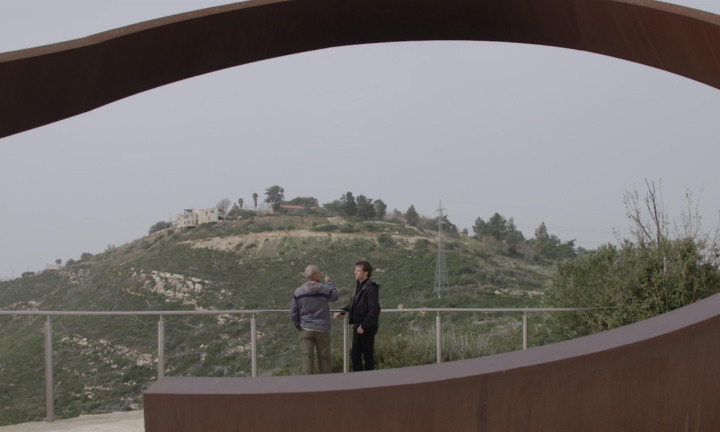
POV: It would be very easy for you to come out of this and simply be cynical, and take a confrontational point of view because you felt that you were lied to. However, instead of looking at a linear thing, you literally branched, like a tree. You found different series of roots and different branches to take off. Can you talk about your own experience getting there?
JS: I’s not something that I came to without a lot of experience in talking about it and writing about it in theatre and other venues. I’m not there to tell anyone how to think or feel. What I’m hearing from you is that you don’t think that I am doing that, which is good, because that would be an advocacy film! I was very aware of not wanting to make a film like that, that could be just seen as an anti-this or anti-that. I went in with some knowledge, but was open to learning from people on both sides of the divide. I do this in my plays too—wanting to come away not with an answer but with a question. I am not interested in telling stories that end with an answer because it’s all part of an evolution.
The film is questioning assumptions I grew up with and learning that there’s a lot underneath what I was told. Now that I know something different, what do I do with this? Not to be precious about it, but in a way, making the film was the answer. It’s not the end. It’s almost like the beginning of a journey if you will.
POV: There are arguments to be made that what the JNF did was positive despite the fact that they did it for reasons that trump other considerations, and that the very notion of ownership is complicated by thousands of years of colonial rule over a land of originally settled by people forcibly displaced. Other people say the very notion of buying up this land was itself the beginning of what is now called a war crime and the founding of an apartheid state.
JS: I wish the JNF had taken part in the film so that they could espouse the first part of what you just said. Unfortunately, they chose not to, except for the gentleman towards the end of the film who was no longer associated with the JNF but was responsible for the building of Canada Park where my tree is located and he says his piece.
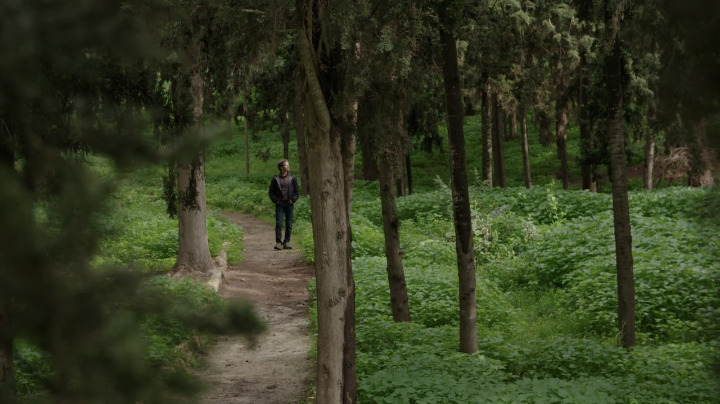
POV: It seems that there’s no country better at dealing with these contradictions in its art than Israel, so perhaps your film will be embraced there. Are you concerned that your film will not necessarily reach those who need it, namely, Toronto Jews who won’t watch it because they think it’s going to be negative about Israel, or a whole bunch of leftists or rightists, who think that the whole notion of the state of Israel is itself a poison?
JS: First of all, I don’t know how nuanced it is in Israel these days. What’s left of the left is pretty small. The right wing drift has turned into a right wing tsunami. You know, sure, there’s Ha’aretz, the Guardian -like newspaper, and there are still leftist groups. But they’re pretty small, in terms of membership and they are under attack. I don’t know any other country where a group that decides to talk about the dark part of its history, i.e. the Nakbah, or “disaster,” which is what Palestinians call what happened in 1948, are then under threat of having the funding of their organization taken away by the state. It’s amazing that something like that could actually exist, but it’s emblematic of what’s happening over there. You hear this from leftist Jews, the relatively few that there are, and they feel under attack.
I’m probably being quite naïve about it. I think there will be people who simply don’t want to hear some of the conversations in the film. They don’t want to know about the Arab villages under the parks. There’ll be people who might [respond to my statement about] how I discovered that my tree was sitting on top of an Arab village that was destroyed in 1967 [and say] “Oh, well.” I hope [they] watch the film and come away with not “Oh, well” anymore. Yes, there are going to be people who just dismiss it out of hand and are going to call me a self-hating Jew and anti-Semite, and all of that, and we can’t criticize Israel for anything at all because it’s anti-Semitic and all of that crap. It is crap, because there is no other country that can take that point of view, that if you dare criticize any element of policy, you are attacking the very foundation of the people of that country and guilty, to boot, in Israel, of Jew hating. I hope that people take it in the spirit in which it’s intended, which is to engender conversations and to get people to ask questions themselves.
POV: If this is the case, with all these contradictions, what then is your argument for there being a state of Israel?
JS: Israel is an amazing thing in many ways. As I say, I’m not here to call for the end of Israel, by any means. I’m here to call for fairness and justice, so Israel can be what it claims to be: a democracy. But it can’t be a democracy and also continually oppress millions of people within its borders.
POV: Can it be a democracy and still a majority Jewish state?
JS: Certainly, if the Palestinian people get to have their own state as well.
My Tree premieres at Hot Docs 2021.




